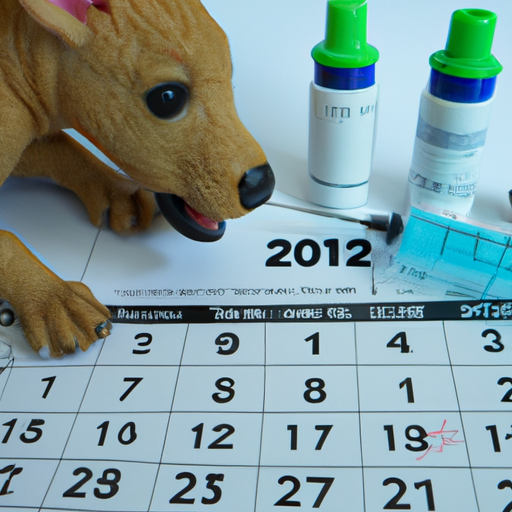“`markdown
How Long Do Rabies Shots Last for Dogs?
As a caregiver, you always want the best for your furry friend. You might have wondered, “Just how long do rabies shots last for dogs?” This guide will help you understand more about the crucial aspect of dog care.
Understanding Rabies Vaccination
Rabies is a serious disease, and vaccination is the best line of defense. Rabies vaccinations for dogs are not only a medical necessity but also a legal requirement in many regions.
- The initial rabies vaccine is usually given to puppies at the age of 3 months.
- A booster shot is then given one year later.
- Following this, rabies shots are typically given every 1 to 3 years, depending on the type of vaccine used and local laws.
Factors Affecting the Duration of Rabies Shots
The duration of effectiveness of rabies shots can be influenced by several factors:
- Type of Vaccine: Some vaccines are labeled for one year while others are labeled for three years.
- Dog’s Health Status: A dog with a strong immune system will respond better to the vaccine.
- Local Laws: Some regions require yearly rabies vaccination irrespective of the vaccine type used.
Why Regular Rabies Shots are Essential
Rabies is a fatal disease, with no known cure. Regular immunization is essential to:
- Protect your dog from contracting the disease.
- Prevent your dog from becoming a carrier and spreading the disease to other animals or humans.
Rabies Vaccination Schedule
| Age | Vaccine |
|---|---|
| 3 months | Initial Vaccine |
| 1 year | First Booster Shot |
| Every 1-3 years | Regular Booster Shots |
Regular vet check-ups will ensure your dog’s vaccinations are up-to-date.
FAQs
Q: My dog is an indoor dog. Does he still need a rabies shot?
A: Yes, even indoor dogs can encounter rabid animals, so vaccination is important.
Q: Can the rabies vaccine make my dog sick?
A: Side effects are rare, but some dogs might experience mild symptoms like fever or lethargy.
Q: What if I miss a booster shot for my dog?
A: It’s important to reschedule. While a short delay might not be critical, long gaps can leave your dog unprotected.
Remember, as a caregiver, your pet’s health is in your hands. Stay informed, stay vigilant, and keep those tails wagging!
“`



